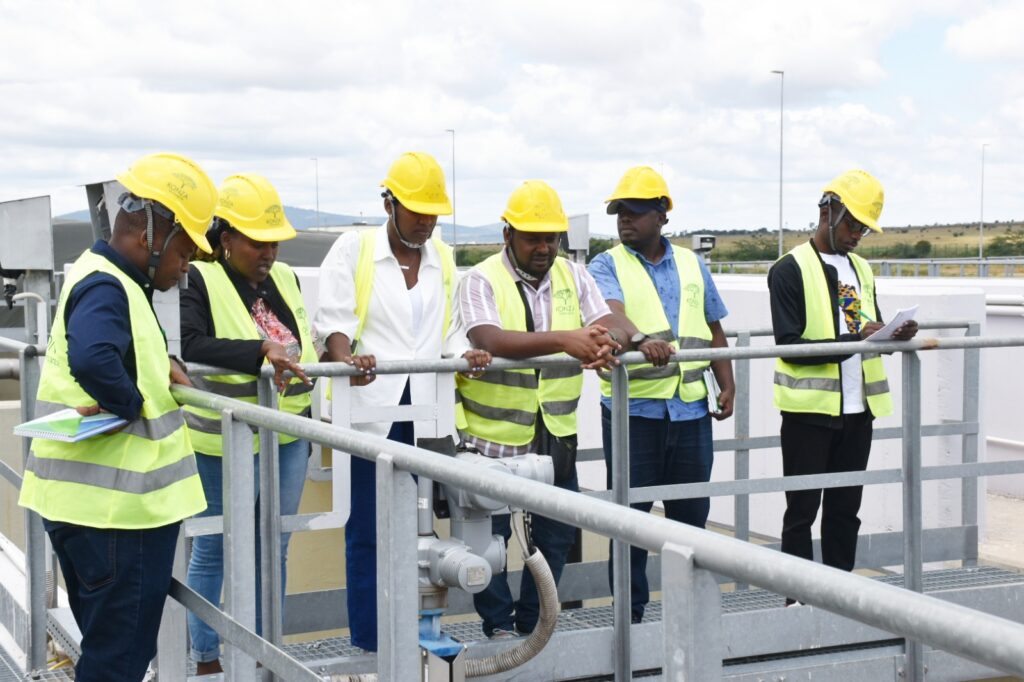
CONCEPT NOTE
INTERNATIONAL TRAINING ON CREATING AN ENABLING ENVIRONMENT FOR RESPONSIBLE INVESTMENT IN AGRICULTURE AND FOOD SYSTEMS – REFORM
COURSE BACKGROUND
Attracting and managing responsible investment in agriculture and food systems is essential for achieving food security, reducing poverty, and promoting sustainable development. However, without a supportive enabling environment, investments may fall short of delivering inclusive and sustainable outcomes — or worse, harm communities and ecosystems.
This course, developed by ECAS Institute as part of its commitment to promoting sustainable agricultural transformation, focuses on reform processes that governments and stakeholders can undertake to create an environment conducive to responsible agricultural investment (RAI). By drawing on internationally recognized principles and inclusive governance practices, the course equips participants with practical tools to guide reforms that are socially inclusive, environmentally sustainable, and economically sound.
This is the first in a series of three ECAS courses on RAI, and it lays the foundation by addressing how policy, legal, regulatory, and institutional frameworks can be shaped to support responsible investment.
COURSE OBJECTIVES OF THE TRAINING
Participants will be able to:
- Understand how to design a comprehensive reform strategy for responsible investment.
- Establish inclusive, gender- and youth-sensitive multistakeholder consultation platforms.
- Recognize the importance and functions of regulatory processes in implementing effective investment policies and legal frameworks.
- Identify challenges and opportunities in aligning national governance systems with responsible investment goals.
WHAT YOU WILL LEARN
By the end of the course, you will:
- Know the key decisions in formulating a reform strategy that supports RAI.
- Understand how multistakeholder platforms function and why inclusive participation matters.
- Gain insights into how regulatory tools enforce responsible investment practices.
- Be prepared to contribute to national efforts for policy and legal reforms in agriculture and food systems.
DURATION AND PROGRAM
TARGET PARTICIPANTS
This course is designed for those involved in creating or influencing enabling environments for agricultural investment, including:
- Policymakers and legislators in agriculture, investment, or economic development
- Technical staff in ministries and government institutions
- Representatives of small-scale producer organizations and cooperatives
- Civil society members advocating for equitable and sustainable food systems
- Legal and institutional reform advisors and facilitators
TRAINING MODULES
| No | Module | Details | |
| 1. | Key Principles for Driving Reforms |
This lesson introduces the core principles and components of a reform strategy aimed at fostering responsible agricultural investment.
Topics:
|
|
| 2. | Establishing Multistakeholder Platforms |
This lesson focuses on how to structure and operationalize multistakeholder platforms to ensure inclusive dialogue and participatory decision-making.
Topics:
|
|
| 3. | The Role of Regulatory Processes |
This lesson highlights how regulatory mechanisms give effect to reform objectives by setting standards, enforcing compliance, and creating accountability.
Topics:
|
|
TRAINING STYLE
The modules will be taught through PowerPoint presentations, and lectures and will include a case study/field visit, breakout sessions, case studies and other interactive discussion components.
The course will also include a few guest speakers, both in person and via Zoom and other online learning platforms for overseas speakers. This provides useful real-world insights alongside the more theoretical aspects of the course.
The conference faculty shall consist of experienced decision makers, as well as practitioners and representatives from established educational and research institutions active around climate change, engineering and international development. Throughout the course, theoretical presentation of concepts will be moderated and more group discussions and plenary engagements will be optimized. PowerPoint presentations will be made by facilitators and resource persons, to highlight key concepts before embarking on group work.
GENERAL NOTES
- Training manuals and additional reference materials are provided to the participants.
- Upon successful completion of this course, participants will be issued with a certificate.
- We can also do this as a tailor-made course to meet organization-wide needs. Contact us to find out more: info@ecasiafrica.org.
- Payment should be sent to our bank account before the start of training and proof of payment sent to: info@ecasiafrica.org.
ABOUT ECAS INSTITUTE
The ECAS Institute designs and delivers independent and targeted training, research, and consulting services. Our work focusses on climate change and resilience building, carbon markets, renewable energy, nature-based solution, biodiversity conservation, agriculture and food systems, We are located in Nairobi Kenya and work across the African region. We have implemented training and research assignments in Kenya, Tanzania, Uganda, South Sudan, Somalia, Malawi, Rwanda, Congo, and South Africa. Globally, we have supported our partners from the UK, Denmark, Italy, Sweden, Germany, and USA.

